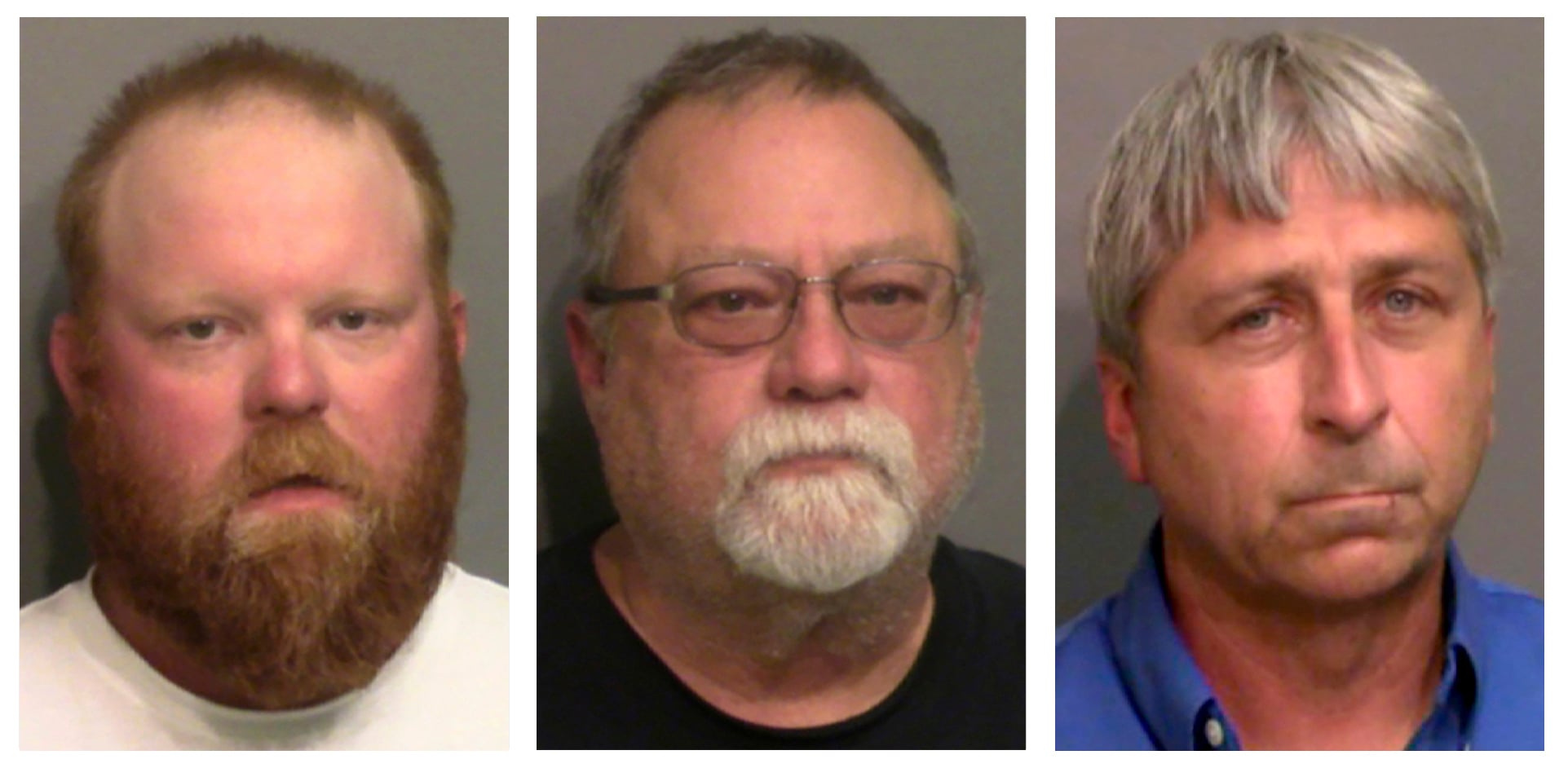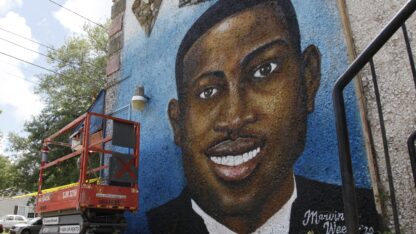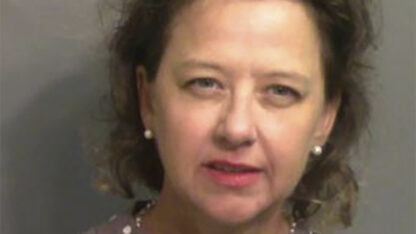Several potential jurors in the hate crimes trial of three white men who chased and killed Ahmaud Arbery said in court Tuesday that they believe problems with racism in America are exaggerated and questioned whether there should be special charges or punishments for crimes motivated by race.
One jury pool member was asked by the judge and attorneys why she wrote on her juror questionnaire that “hate crimes are damaging to society as a whole.”
“I just think it doesn’t matter what the race is,” said the woman, identified in court as juror No. 156, whom the judge ultimately deemed qualified to remain in the jury pool. “If it’s wrong, it’s wrong.”
Father and son Greg and Travis McMichael armed themselves and chased Arbery in a pickup truck on Feb. 23, 2020, after spotting him running in their Georgia neighborhood. A neighbor, William “Roddie” Bryan, joined the pursuit and recorded cellphone video of Travis McMichael blasting Arbery with a shotgun.
Allegations that the killing was motivated by racism are at the heart of the federal case in U.S. District Court, where the McMichaels and Bryan are charged with violating 25-year-old Arbery’s civil rights and targeting him because he was Black.
All three were convicted of murder in November in a Georgia state court, where they were later sentenced to life in prison. They were charged separately in a federal indictment and must stand trial a second time on hate crime charges. The McMichaels and Bryan have pleaded not guilty in the federal case.
Jury selection began Monday, with those summoned questioned in court about what they already know about the case, their feelings on issues involving race and other matters that could prevent them from serving as impartial jurors. Potential jurors were identified in court only by numbers, not by name. They weren’t asked their race and often did not mention it when answering questions.
As of Tuesday afternoon, Judge Lisa Godbey Wood had qualified 44 jury pool members, out of 61 questioned, to return to court next week, when she plans to seat a final panel of 12 jurors and four alternates. Wood predicted that will happen next Monday.
Potential juror No. 171 said during questioning Tuesday he thinks problems with racism are exaggerated and he’s “never seen a real problem with it in my day.”
“I grew up with all races and have no problem with anybody,” said the panelist, who described himself as a “white man from the South.”
Pressed by prosecutor Christopher Perras on whether he could support a conviction on hate crimes charges, No. 171 insisted he could “with the right evidence.”
“There would have to be a real drive for them to chase a man because of his skin color, a real history,” said the potential juror, who was also qualified to advance in the jury pool.
Another man, juror No. 132, answered a question on his jury form about hate crimes that “hate is a subjective term. A crime is a crime.”
“My view is, you know, when you commit a crime against another person, there is a certain level of hate,” No. 132 said when asked to explain his position.
When the judge asked if that view would make it difficult for him to convict someone of a hate crime, he answered: “The law is the law, your honor.”
Jury selection took more than two weeks in the state’s murder case. The search for an impartial jury in federal court comes after the McMichaels and Bryan were convicted and sentenced in the widely publicized first trial, and just a week after attorneys announced the McMichaels planned to plead guilty in the federal case in a deal with prosecutors that quickly fell apart.
The judge told potential jurors that, once a jury gets selected, she expects the hate crimes trial to last between seven and 12 days.
In the state murder trial, defense attorneys argued the defendants were justified in chasing Arbery because they suspected he had committed crimes in their neighborhood. Travis McMichael testified that he opened fire in self-defense after Arbery attacked him with fists and grabbed for his shotgun.
For a deeper exploration of Ahmaud Arbery’s story, listen to WABE’s podcast, “Buried Truths.” Hosted by journalist, professor, and Pulitzer-prize-winning author Hank Klibanoff, season three of “Buried Truths” explores the Arbery murder and its direct ties to racially motivated murders of the past in Georgia.








